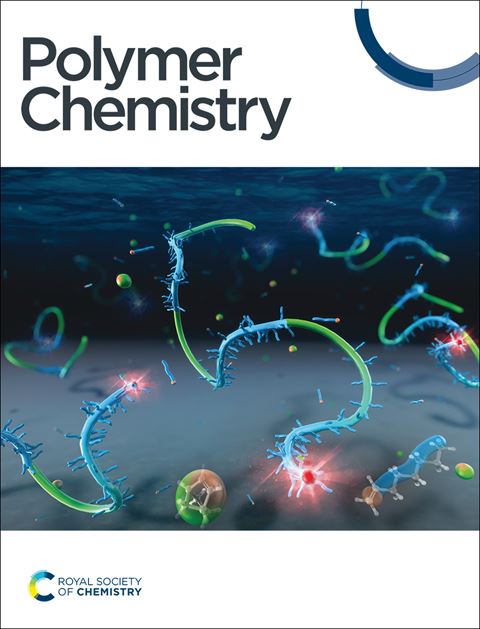Frontal Polymerization of Thiol-Acrylate Covalent Adaptable Networks
IF 4.1
2区 化学
Q2 POLYMER SCIENCE
引用次数: 0
Abstract
Frontal polymerization is a curing method that is known for its high conversion, short reaction times and low energy consumption. However, the resulting materials are typical thermosets, allowing no reprocessing, reshaping nor recycling. Herein, a new approach is pursued, which combines the energy efficiency of frontal polymerization with the unique post-processability of covalent adaptable networks. Thus, selected thiol-acrylate resins, bearing a sufficiently high number of ester linkages and free hydroxyl groups, were investigated, using phosphate esters as transesterification catalysts. The amount of phosphate ester and thiol was varied and its influence on material properties and frontal polymerization kinetics were analyzed. The reaction kinetics were studied with FTIR and photo-DSC measurements, showing a trend towards lower reactivity and higher conversions with an increased thiol content. The obtained networks exhibited tunable bond exchange rates by varying either the amount of thiol or of the catalyst. DMA measurements reveal a higher network homogeneity with increasing thiol content. Moreover, reprocessing, recycling as well as reshaping of the material was successfully demonstrated. Concludingly, these findings could significantly lower energy consumption and increase circularity in future thermoset production.求助全文
约1分钟内获得全文
求助全文
来源期刊

Polymer Chemistry
POLYMER SCIENCE-
CiteScore
8.60
自引率
8.70%
发文量
535
审稿时长
1.7 months
期刊介绍:
Polymer Chemistry welcomes submissions in all areas of polymer science that have a strong focus on macromolecular chemistry. Manuscripts may cover a broad range of fields, yet no direct application focus is required.
 求助内容:
求助内容: 应助结果提醒方式:
应助结果提醒方式:


